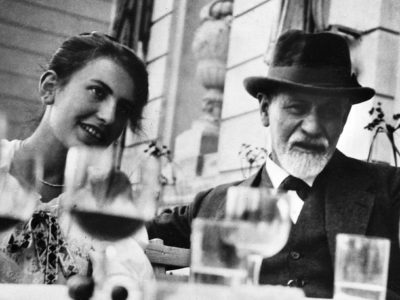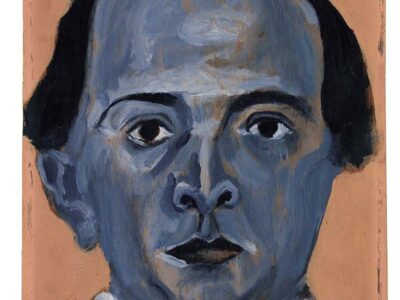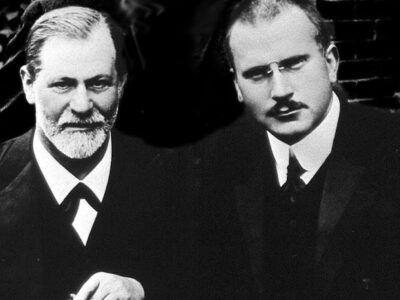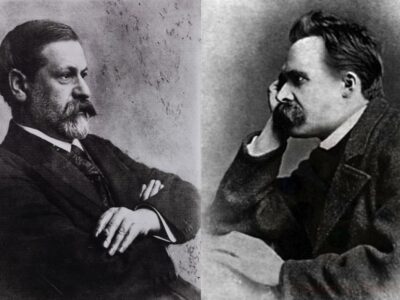
- This event has passed.
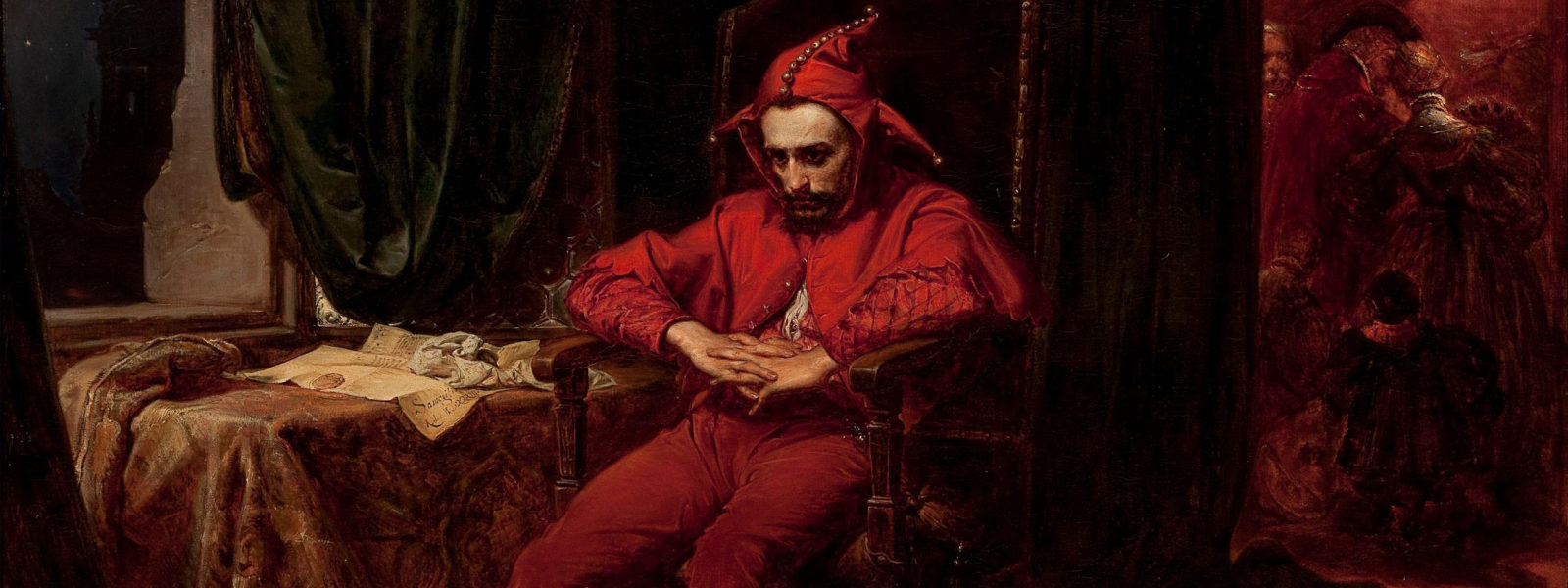
Jokes and the comic, like dreams and slips of the tongue, provided Freud with an important means of investigating the unconscious processes that organise desire and enjoyment.
When we are laughing heartily at a joke, we are not in the most suitable state of mind to inquire into its technique.Sigmund Freud
At once universal and highly subjective, comedy points the way to our modes of navigating – and perhaps subverting – the social Other in all its incongruity.
If the psychoanalytic couch is where the patient articulates their subjective truth, it is often the site of emergence of unique senses of humour.
What part does comedy play in our mental life? Did Freud really have the last word on the nature of the comic? What does our contemporary sense of humour (and lack thereof) reveal about our troubled times?
This conference brings together perspectives from the fields of psychoanalysis, philosophy and comedy to ponder the nature of comedy and what light it can shed on the contemporary world.
Programme
9.00 – 9.30
Registration
9:30 – 10:10
Devorah Baum
Dear Jokes, Whose side are you on? Yours Sincerely, 2019
10:10 – 11:10
Patricia Gherovici
Laughing at and with Psychoanalysis: The Shrink as Clown in Hollywood and Beyond
11:10 – 11:40
Morning break
11:40 – 12:10
Rob Newman
Darwin versus Freud: Two Views On the Origin of Comedy
12:10 – 12:50
Rob Newman in conversation with Anouchka Grose
12:50 – 14:00
Lunch
14:00 – 15:30
Alfie Bown, Dan Bristow, Isabel Millar, Ben Moore, and James Smith
The New Politactics of Comedy – Everyday Analysis
15:30 – 16:00
Afternoon break
16:00 – 17:00
Alenka Zupančič
Stand Up for Comedy
Abstracts
Devorah Baum
Dear Jokes, Whose side are you on? Yours Sincerely, 2019
What hysterical times are these? History, once again, is repeating as farce and anyone who’s anyone is funny, especially online. But if the key to good comedy is a great sense of timing, then who exactly is laughing now? Using historical as well as topical examples, this talk will examine the relationship between politics, history and joking.
Alfie Bown, Dan Bristow, Isabel Millar, Ben Moore, and James Smith
The New Politactics of Comedy – Everyday Analysis
Since their first book, Why Are Animals Funny? (2013), Everyday Analysis has tried to take the political and philosophical side of comedy deadly seriously. On this panel, Alfie Bown, Dan Bristow, Isabel Millar, Ben Moore, and James Smith will discuss the place of comedy in our politically polarised culture today: from the use of irony and comedy memes by the alt right, the emerging cottage industry of satires against ‘social justice’ politics, and the funniest president ever, to the question of ‘radical comedy’ as – Alenka Zupančič theorises it – for the left today.
Patricia Gherovici
Laughing at and with Psychoanalysis: The Shrink as Clown in Hollywood and Beyond
“I am a clown. Take that as an example, and don’t imitate me!” (Lacan, 1974. In: Nobus, 2016, p. 37). In most films about psychoanalysis we witness a collapse of the analyst-analysand relationship or stories of the abject failure of the relation. Are unsuccessful psychoanalyses depicted on the screen as warnings against misguided imitations? What we see on the screen, gleefully, is how the psychoanalyst fails. We enjoy watching shrinks fail and take solace in a tragicomic version of psychoanalysis. However, beyond mere Schadenfreude, something interesting is revealed when the frame slips out of focus or is broken. To illustrate this thesis, I will discuss films like What About Bob? (1991), Lovesick (1983), and Analyze This (1999). They explain why, when the analyst is presented as a failing clown, such a parody gives more relevance to Lacan’s statement that “the closer we get to psychoanalysis being funny, the more it is real psychoanalysis.”
Rob Newman
Darwin versus Freud: Two Views On the Origin of Comedy
Rob will argue that the ideas about comedy advanced by Darwin (in The Expression of the Emotions In Man and Animals) and by Russian psychologist Lev Vygotsky offer us a counterpoint to Freud’s pessimistic take on laughter, based as they are are on ideas of human sociality opposed to those of Freud.
Alenka Zupančič
Stand Up for Comedy
Rules of public speech are undergoing an important transformation as our sensibility for injury and hurt augments. Where does this leave comedy, and particularly stand-up comedy? Freud held that all tendentious jokes – which means most of the jokes – rely on either sexuality or aggression. So where does this leave joking as social and socializing practice? These and similar question will be discussed, also in reference to some concrete examples and cases, such as the “case” of Louis C.K.
Speakers’ Biographies
Devorah Baum is Associate Professor in English Literature at the University of Southampton. She is the author of two books, Feeling Jewish (Yale University Press) and The Jewish Joke (Profile), and co-director of the creative documentary feature film, The New Man. She has written for a range of publications including The New York Times, The Guardian, The Financial Times, Tate Etc, Times Higher Education and Granta. Her guest co-edited special issue of Granta Magazine on ‘The Politics of Feeling’ came out in Feb 2019.
Alfie Brown is lecturer in Media Arts and Royal Holloway University London. He is author of The Playstation Dreamworld (Polity, 2017) and In the Event of Laughter (Bloomsbury, 2018) and writes for The Guardian, Paris Review and New Statesman.
Daniel Bristow is a recovering academic, writer, bookseller, and trainee psychoanalyst with the Philadelphia Association, London. He is author of Joyce and Lacan: Reading, Writing, and Psychoanalysis (Routledge, 2016) and 2001: A Space Odyssey and Lacanian Psychoanalytic Theory (Palgrave, 2017), co-founder of Everyday Analysis, and editor with Alfie Bown of Post-Memes: Seizing the Memes of Production (Punctum, 2019).
Patricia Gherovici, Ph.D. is a psychoanalyst and analytic supervisor. She is co-founder and director of the Philadelphia Lacan Group and Associate Faculty, Psychoanalytic Studies Minor, University of Pennsylvania (PSYS), Honorary Member at IPTAR the Institute for Psychoanalytic Training and Research in New York City, and Founding Member of Das Unbehagen. Her books include The Puerto Rican Syndrome (Other Press: 2003) winner of the Gradiva Award and the Boyer Prize, Please Select Your Gender: From the Invention of Hysteria to the Democratizing of Transgenderism (Routledge: 2010) and Transgender Psychoanalysis: A Lacanian Perspective on Sexual Difference (Routledge: 2017). She has published two edited volumes (both with Manya Steinkoler) Lacan On Madness: Madness Yes You Can’t ( Routledge: 2015) and Lacan, Psychoanalysis and Comedy (Cambridge University Press: 2016). Most recently, she published a collection (with Chris Christian) Psychoanalysis in the Barrios: Race, Class, and the Unconscious (Routledge: 2019).
Anouchka Grose is a psychoanalyst and writer practising in London. She is a member of the Centre for Freudian Analysis and Research, where she regularly lectures. She has written non-fiction: No More Silly Love Songs: a realist’s guide to romance (Portobello, 2010), Are you Considering Therapy? (Karnac, 2011), and From Anxiety to Zoolander: notes on psychoanalysis (Karnac, 2018) as well as writing fiction: Ringing for You (Harper Collins, 1999) and Darling Daisy (Harper Collins, 2000). She also writes about art and contributes to The Guardian, Radio 4, and Resonance FM.
Isabel Millar is a PhD candidate in Psychoanalysis and Contemporary Theory at Kingston University. Her research is on Lacan, sex and technology, with a focus on Sex-bots and Artificial Intelligence. She has published articles with Psychoanalytische Perspectieven and JCFAR and blogs at Hysteric’s Discourse.
Rob Newman has been writing and performing comedy for over 30 years. His Radio 4 series Rob Newman’s Total Eclipse of Descartes won Best Scripted Comedy at the 2019 BBC Audio Drama Awards. Rob’s most recent books are Neuropolis – A Brain Science Survival Guide (2016) and The Entirely Accurate Encyclopaedia of Evolution (2014).
Ben Moore is Assistant Professor of English Literature at the University of Amsterdam. He works mainly on nineteenth-century literature and has published on topics including Charles Dickens, Walter Benjamin, and advertising in modernist writing.
James A. Smith teaches literature at Royal Holloway, University of London. He is the author of Samuel Richardson and the Theory of Tragedy (Manchester University Press, 2016) and Other People’s Politics: Populism to Corbynism (Zer0, 2019).
Alenka Zupančič is a Slovene philosopher and social theorist. She works as research advisor at the Institute of Philosophy, Scientific Research Center of the Slovene Academy of Sciences. She is also professor at the European Graduate School in Switzerland, and at the Graduate School ZRC SAZU (Ljubljana). She is the author of numerous articles and books on psychoanalysis and philosophy, including Ethics of the Real: Kant and Lacan; The Shortest Shadow: Nietzsche’s Philosophy of the Two; Why Psychoanalysis: Three Interventions; The Odd One In: On Comedy; and, most recently, What is Sex?
Bursary places
A limited number of bursary places are available for those under financial hardship.
Bursary places are charged at £25.
Priority will be given to UK unemployed and PIP/ESA claimants.
Apply for a bursary place
Bursary applications are now closed.
